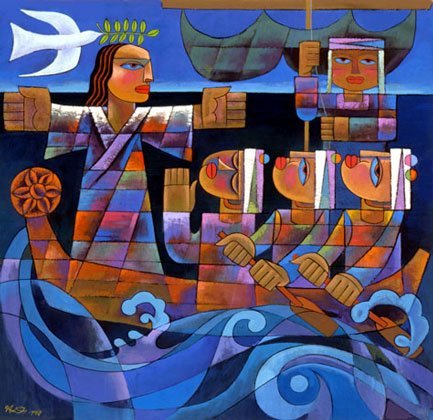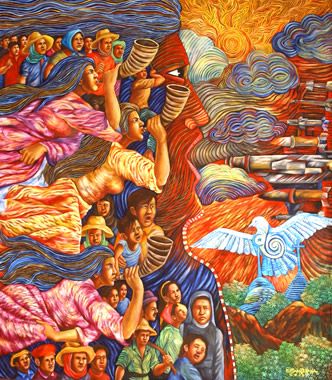Rev. Andy Tiver
As a Christian I am offended by what the President has said, God is not stupid, nor are the bible stories that shape and form my faith stupid. All people who share the faith of Abraham – Christians, Muslims and Jews – must be offended by the President’s slander against God. While I am appalled at his words, I also know that God is in no need of a defender, God can take care of God’s own self. In any contest between a pretentious human ruler and the God of justice, it is God who will prevail. There is a deep irony in the president’s slander of God and his contempt for the scriptural story of Adam’s expulsion from the garden. This story which in different ways is found in the scriptures of Muslims, Jews and Christians and tells of the original man Adam who in given a special place in a garden paradise but he eats a fruit that God has forbidden and as a result of this rebellion against God Adam is cast out of the garden into corruption. It is neither a stupid story nor is it about a stupid God, rather it is about a stupid man. A man who thinks that he can disregard the commandments and constraints placed on him by the living God, a man who in his stupidity thinks he can rival God.
Again and again President Duterte has shown that he respects neither God nor those who have been created in the image of God. He has continually spoken against the basic rights inherent in the human person, he has promoted the violation of the civil and political rights of the people, under his rule there are now some 23,000 ‘deaths under investigation’ as a result of the actions of police or vigilantes, through his TRAIN law he has placed harsh burdens on the poorest and weakest in society, and he has continually insulted and degraded the dignity of women through his words and actions. He has turned his back on opportunities for peace and has traded away the sovereignty of the nation and the future of our young people to foreign powers and he has bowed down to China. President Durterte is unwilling to accept the limitations that the commandments of God and the justice of God place on his actions. Duterte can only see a God that would constrain his excesses as being a stupid God, and a story that speaks of the consequences that come to those who rebel against God as a stupid story.
There is another story in the scriptures; perhaps the president would also find it a stupid story. It is a story about how the people when they were oppressed in Egypt cried to the Lord, and the Lord heard their cries, and the Lord liberated them from oppression. Today in our nation the mothers of the young men who have fallen in the presidents drug war cry out for justice, those who have no home but the streets and are detained without cause cry out for justice, the workers who were promised an end to endo cry out for justice, the farmers who continue to wait for genuine land reform cry out for justice, the people tired of conflict and who yearn for peace cry out for justice. This one who Duterte calls stupid hears theirs cries and will certainly come to liberate the people from harsh oppression. Then we will see who is really stupid.##


 Psalm 107:23-26, 28-31
Psalm 107:23-26, 28-31

